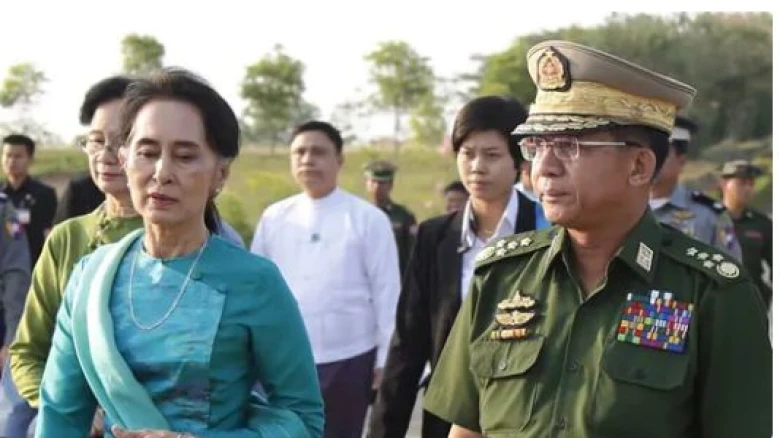Regional

color:#757575"> Digital
desk: The situation behind the Bamboo Curtain in Myanmar has deteriorated, with
anti-military junta forces increasing their operations across the country and
anti-China emotions running high due to China's exploitation of mineral
reserves and support for the military regime.
Myanmar
confirmed 647 conflict-related deaths last month, including 34 civilians, 581
security personnel, three militants, and 32 in fighting between pro-government
and opposition forces. In April, 379 people died as a result of the war,
including 17 civilians, 338 security personnel, 11 militants, and 13 resistance
fighters. Overall, there was a 1.5-fold rise in fatalities in May compared to
April, with security force fatalities climbing by 71.89 percent.
The
654 fatalities in May are the worst in a month since the military junta led by
Senior General Min Aung Hliang rejected the democratic mandate in favour of
National League for Democracy leader Aung San Suu Kyi in a military coup in
February 2021. Suu Kyi is currently under house arrest after being convicted on
multiple offences by a military court.
With
Hong Kong-listed private security contractors recruited by Chinese company
Wanbao Mining in Salingyi township in Sagaing Region, anti-military junta
resistance is growing in Myanmar, as is anti-China sentiment. This company has
formed a joint venture with Myanmar's Economic Holdings Ltd to collect copper
from the region's Letpadaung mines.
On
May 1, local militia members opposed to the military junta ambushed a military
ship transporting reinforcements and rations for a Chinese company on the
Chindwin River. Resistance groups and Burmese expats have asked Beijing not to
supply the military junta with weaponry and ammunition, and skirmishes between
local militia and Myanmar security forces have occurred in the Sagaing copper
mines.
At the Tokyo conference last month,
Quad leaders also discussed Myanmar's ongoing political situation. The leaders
of the four member countries – India, the United States, Australia, and Japan –
voiced worry over the crisis and called for the ASEAN Five Point Consensus to
be implemented as soon as possible.
Leave A Comment